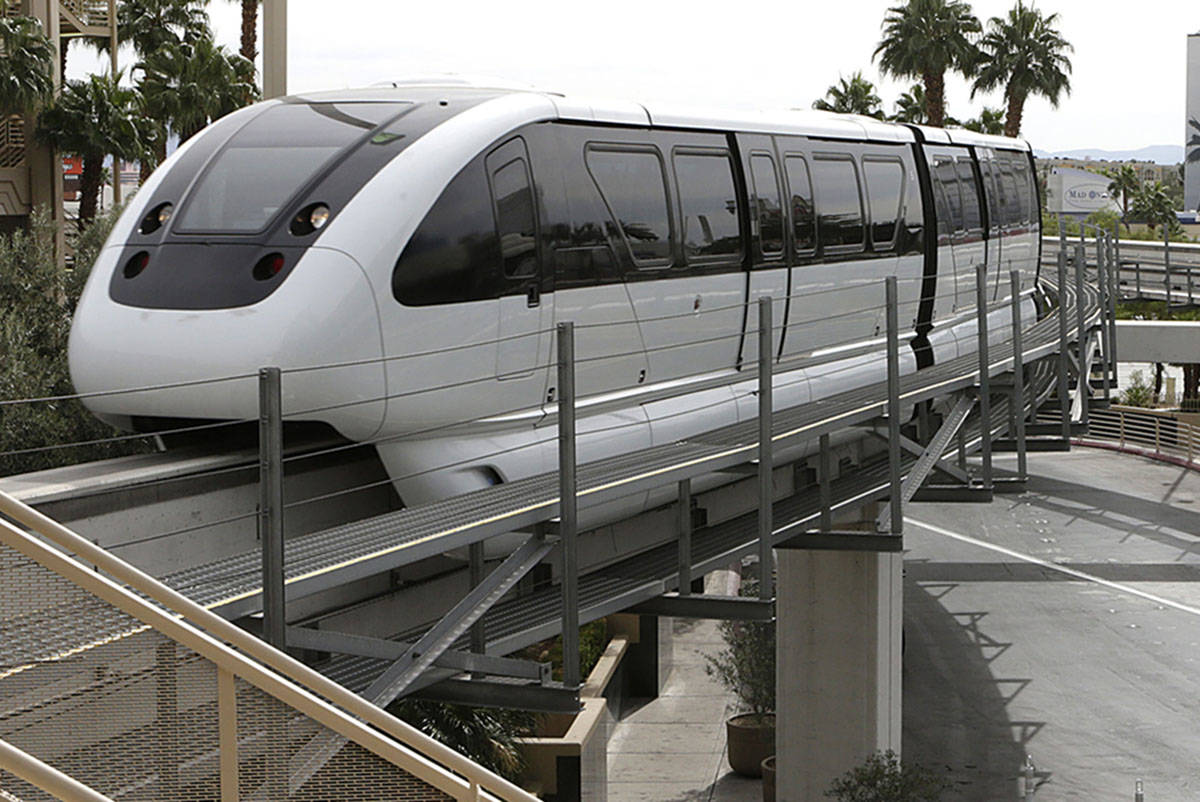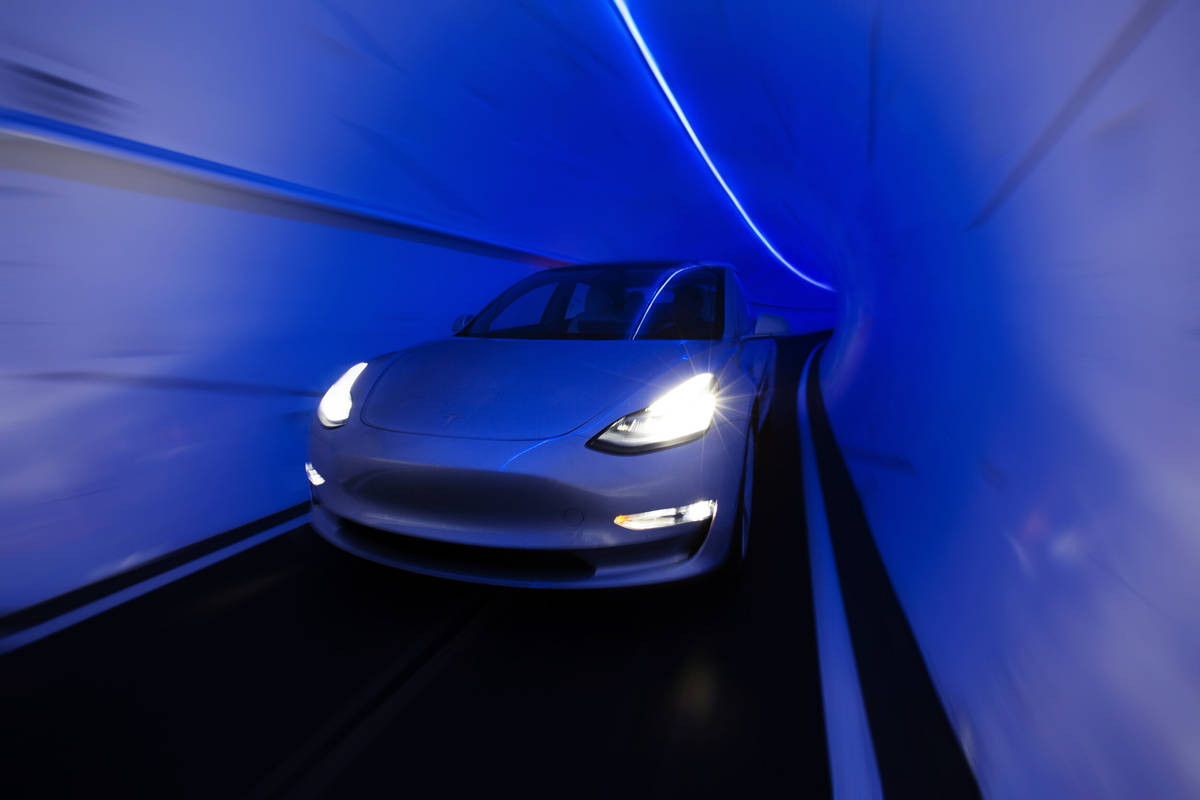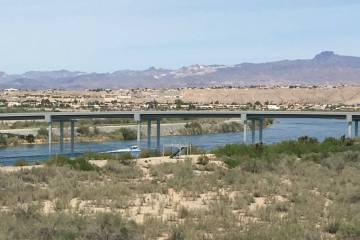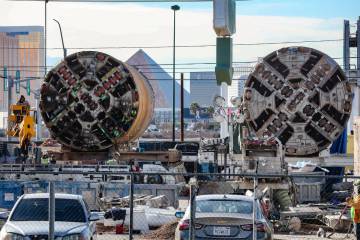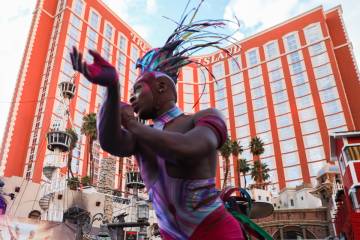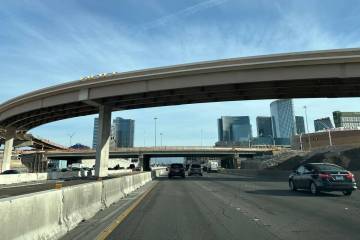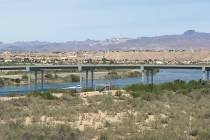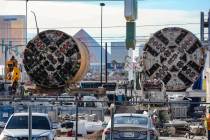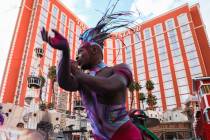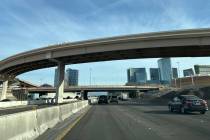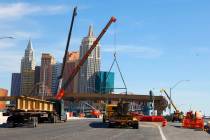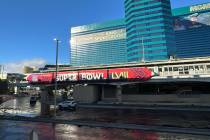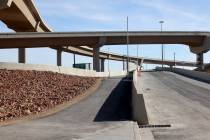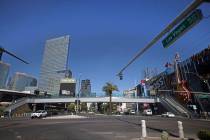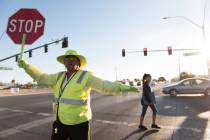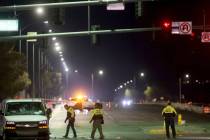LVCVA’s purchase of monorail an investment in future Strip travel
The Las Vegas Convention and Visitors Authority’s $24.26 million purchase of the Las Vegas Monorail is not an investment in the future of the long-struggling transportation mode. It’s an investment in the future of mobility in the resort corridor and beyond.
The tourism agency’s board of directors and Clark County last week approved the deal, which will allow the LVCVA to work toward removing the noncompete clause the monorail has in its franchise agreement, which keeps rival transit systems from operating in the resort corridor.
Since its inception, the 3.9-mile monorail system running from near the Sahara to the MGM Grand — but behind the Las Vegas Strip — has failed to live up to ridership expectations, leading to financial issues. The only time the system is at or near capacity is during large conventions.
Elon Musk’s The Boring Company is in the midst of finishing up its Convention Center Loop, which will go live when the Las Vegas Convention Center’s expansion project opens to the public next year. The loop includes a pair of tunnels with autonomous Teslas that will shuttle passengers between convention halls.
Planned extensions to Encore and Resorts World already been approved and are expected to be complete next year as well.
But Musk’s plans don’t stop at the pair of north Las Vegas Strip properties. Plans call for the underground people mover ultimately to transport Stripgoers down Las Vegas Boulevard, stopping at the majority of resort properties along the way.
Both the LVCVA and the Las Vegas Raiders have confirmed interest in extending the Las Vegas Loop to Allegiant Stadium as early as the start of the 2021 NFL season.
“I know the Boring Company is working on that,” said Steve Hill, LVCVA CEO. “It takes some work to figure out where that route should go.”
Without the removal of the noncompete clause, Boring will not be able to extend the line, which it will finance, unlike the convention center loop, which cost the LVCVA $55 million.
An estimated cost for the Vegas Loop has yet to be released, but it’s safe to say it will be hundreds of millions of dollars, with a healthy workforce needed to carry out the work.
Hill said the trains on the monorail system will need to be replaced within the next eight to 10 years at an estimated cost of $200 million. With no plans by the LVCVA to pony up hundreds of millions of dollars for that, it appears that will be the end of the line for the system.
The LVCVA estimates that it will cost $11 million to decommission the monorail system, and Hill said it would take a few months to do so. The hope is to have the Boring extension or other transportation mode in place so there’s no period when a mass people-mover mode is not available for Strip visitors and conventiongoers.
“The way it’s structured currently is the noncompete area nobody can try,” Hill said. “When we get to the point that it’s either physically or financially obsolete, then we could try and replace it and there would be a gap there. That would be a problem for the city. This helps facilitate, hopefully a great transition thought the next decade.”
So, don’t look at the pending transaction as the LVCVA falling into a money pit with the monorail. Look it as the agency opening up the transportation future for the area.
Send questions and comments to roadwarrior@reviewjournal.com. Please include your phone number. Contact Mick Akers at makers@reviewjournal.com or 702-387-2920. Follow @mickakers on Twitter.



